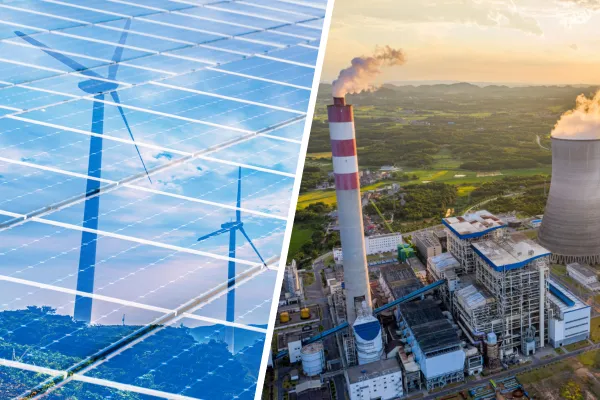
Energy Security vs. Net Zero — Can the UK Balance Both?
Energy Security vs. Net Zero — Can the UK Balance Both?
Energy security and Net Zero are often framed as competing priorities. One is about keeping the lights on today, the other about building a sustainable energy system for tomorrow. But in reality, the UK cannot achieve one without the other.
Progress and Economics
In 2024, renewables generated over 50% of the UK’s electricity for the first time, with low-carbon sources supplying around 65% of the grid. Fossil fuels fell to just 31% — the lowest share since the 1950s. This demonstrates how quickly the UK’s power mix is changing, and how central clean energy already is to the system.
Cost is an equally important factor. Offshore wind is now roughly 60% cheaper than gas-fired generation. Levelised costs are estimated at ~£44 per MWh for offshore wind compared to ~£114 per MWh for new gas plants. Renewables are no longer just a climate solution; they are a cost-competitive backbone of the UK’s energy supply.
Risks of Gas Dependence
Despite this progress, the UK still imports around 45% of its gas supply. Reliance on fossil gas leaves the country exposed to global market volatility. Gas-fired generation remains nearly 90% more expensive than before the 2021 energy crisis, with costs rising by another ~33% in 2024.
This dependency has meant higher household bills, more volatile costs for industry, and reduced resilience during times of geopolitical stress. Energy security built on imported gas is neither stable nor sustainable.

Problems and Delays
At the same time, renewable deployment faces structural challenges. The grid queue now contains 700–800 GW of projects, with some connection dates pushed into the 2030s. These bottlenecks mean billions of pounds of potential investment and capacity are stuck waiting for infrastructure.
Without faster grid reform and clearer planning processes, the UK risks stalling progress just as momentum is building.
Energy Independence in Action
Despite these barriers, the link between Net Zero and energy security is already visible. Electrification of transport and heating is cutting fossil fuel demand today. In 2023, EVs and heat pumps powered by low-carbon electricity displaced the equivalent of 14 million barrels of oil and gas imports — about 3.4% of annual UK demand.
Every new renewable project strengthens security by reducing exposure to volatile gas markets and lowering import bills. The fastest way to secure the UK’s energy future is not to slow down the Net Zero transition, but to accelerate it.
